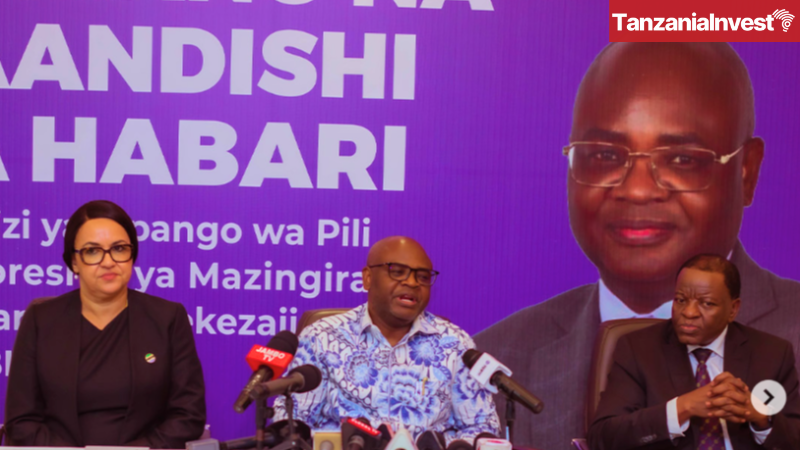The Government of Tanzania has called on business and investment stakeholders to provide input for the Second Business and Investment Environment Improvement Programme (MKUMBI II), with consultations set to begin next week across 16 regions as part of efforts to support the country’s Vision 2050.
The announcement was made on 6th June 2025 by the Minister of State in the President’s Office for Planning and Investment, Prof. Kitila Mkumbo, during a press conference held in Dar es Salaam.
Prof. Mkumbo explained that a National Technical Team has completed the preparatory phase and will now begin collecting feedback from the private sector and related stakeholders across the country.
“We want to gather views from as many stakeholders as possible, just as we did in the preparation of the Tanzania Development Vision 2050, to understand the current challenges facing the business environment and create a plan that offers long-term solutions,” he said.
He added that MKUMBI II will review the current state of the business environment, identify achievements and remaining challenges, and develop recommendations for sustainable improvements.
MKUMBI II builds on the first phase of the programme (MKUMBI I), which was launched in 2019 under the regulatory reform blueprint. That phase focused on reducing regulatory burdens, improving government service delivery, and removing barriers to doing business in Tanzania.
The new phase aims to deepen those reforms and align them with the goals of the Tanzania Development Vision 2050, which targets transforming the country into an upper-middle-income economy with a gross domestic product (GDP) of USD 1 trillion and a per capita income of USD 7,000.
An improved business environment is considered essential to achieving this goal, with the private sector expected to play a central role in driving industrialisation, investment, and job creation.










